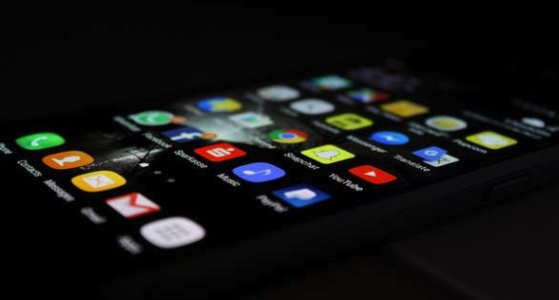A new cyber threat is on the rise, targeting smartphone users
- Replies 7
Imagine this: you're casually scrolling through your phone when you notice the battery draining unusually fast and the device getting hot.
Little do you know, malicious malware has been secretly installed and is hijacking your phone's resources to mine cryptocurrency for attackers.
Cryptojacking is the latest cyber threat on the rise.
It’s a form of cyber theft where hackers exploit devices to mine cryptocurrency. Once infected, the malware runs in the background, slowing your phone down and potentially causing damage from overheating.
So, how do they infect unsuspecting smartphones?

Phishing for victims
One common method is through phishing attacks—deceptive emails or ads tricking users into clicking malware links or downloading infected apps.
Think of phishing as cyber fishing. Hackers bait you with something enticing to get you to 'bite'. And once you click, the malware infects your device, and the cryptojacking begins.
In a previous article, we reported that these phishing schemes are getting extremely sophisticated by the day, and even tech-savvy people can be fooled.
Trojans in camouflage
Another avenue these scammers use is through apps—especially on Android phones—disguising themselves as legitimate to deceive people.
According to cybersecurity company McAfee, Google Play and Apple's App Store have safeguards to review and validate apps, ensuring they are safe. However, third-party websites often lack such measures.
'Some third-party sites might intentionally host malicious apps as part of a broader scam,' they added.
This means that any app not downloaded from the official store may pose a risk, and it's best to delete them as soon as possible.
How to protect your phone and money
To effectively protect your devices from malicious malware, the key is prevention. Here are some tips:

Members, stay vigilant! With the rise of cybercrime, it pays to be proactive about protecting yourself, your data, and, most importantly, your finances. We hope you found the advice in this article helpful! If you have more to add, please leave a comment below.
Little do you know, malicious malware has been secretly installed and is hijacking your phone's resources to mine cryptocurrency for attackers.
Cryptojacking is the latest cyber threat on the rise.
It’s a form of cyber theft where hackers exploit devices to mine cryptocurrency. Once infected, the malware runs in the background, slowing your phone down and potentially causing damage from overheating.
So, how do they infect unsuspecting smartphones?

Cryptojacking is a method of installing malware that uses a computer or smartphone's processing power to mine cryptocurrency for hackers. Credit: Unsplash.
Phishing for victims
One common method is through phishing attacks—deceptive emails or ads tricking users into clicking malware links or downloading infected apps.
Think of phishing as cyber fishing. Hackers bait you with something enticing to get you to 'bite'. And once you click, the malware infects your device, and the cryptojacking begins.
In a previous article, we reported that these phishing schemes are getting extremely sophisticated by the day, and even tech-savvy people can be fooled.
Trojans in camouflage
Another avenue these scammers use is through apps—especially on Android phones—disguising themselves as legitimate to deceive people.
According to cybersecurity company McAfee, Google Play and Apple's App Store have safeguards to review and validate apps, ensuring they are safe. However, third-party websites often lack such measures.
'Some third-party sites might intentionally host malicious apps as part of a broader scam,' they added.
This means that any app not downloaded from the official store may pose a risk, and it's best to delete them as soon as possible.
How to protect your phone and money
To effectively protect your devices from malicious malware, the key is prevention. Here are some tips:
- Always download apps exclusively from reputable sources like Google Play, and avoid third-party websites or stores.
- Before downloading any app, conduct thorough research. Look for warning signs like negative reviews or those that seem fabricated.
- When installing apps, be cautious about the permissions they request. It's highly suspicious if a seemingly innocent app, like a calculator, asks for excessive access, such as your contacts.
- Ensure your device is consistently updated with the latest operating system and security patches. Older versions might have unaddressed vulnerabilities.
- Invest in mobile security software that effectively identifies and blocks malicious malware and other threats.
- Steer clear of clicking on pop-up ads or links from dubious sources, as this is a common tactic used in phishing schemes.
Key Takeaways
- Cryptocurrency-mining malware has been disguised as legitimate apps on Android devices, causing a potential threat to users.
- The malware, known as cryptojacking, uses a device's processing power to mine cryptocurrency for hackers. This activity can slow down the device and cause overheating.
- Users can protect their devices from cryptojacking by avoiding the installation of apps from unofficial stores, not downloading from pop-up windows, reading reviews before downloading apps, keeping the Google Play Protect feature active and ensuring the device is updated with the latest software.
Members, stay vigilant! With the rise of cybercrime, it pays to be proactive about protecting yourself, your data, and, most importantly, your finances. We hope you found the advice in this article helpful! If you have more to add, please leave a comment below.






